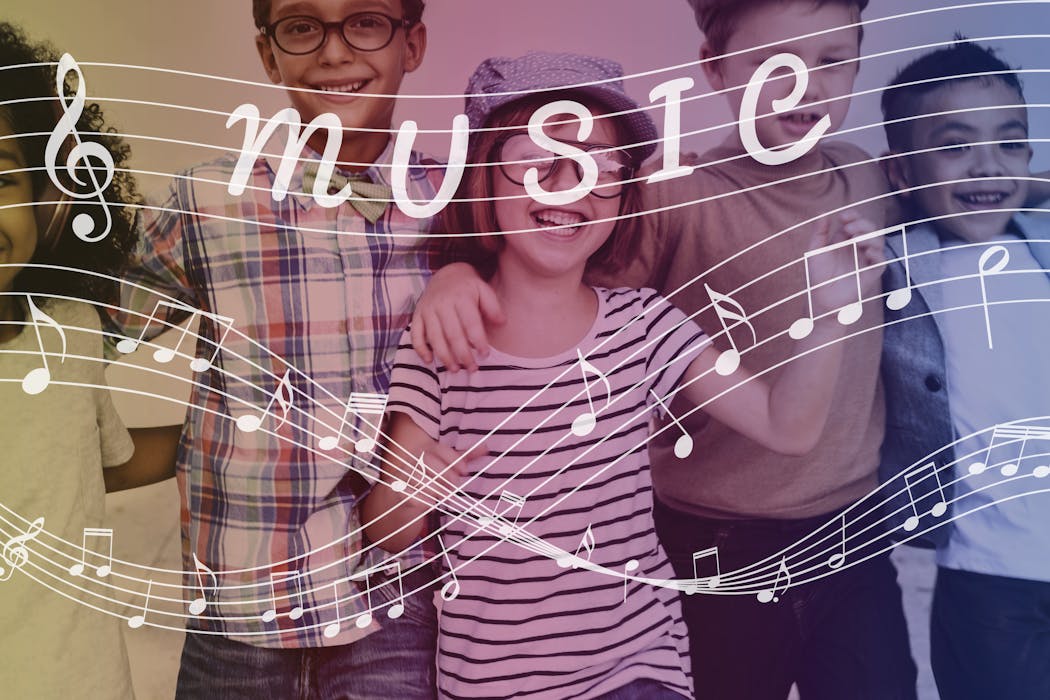Music therapy is a powerful tool that has been used for centuries to help individuals heal and express themselves. It has been shown to have a profound impact on the brain, helping to improve cognitive function, reduce stress, and enhance emotional well-being. Music therapy can take many forms, including listening to music, playing instruments, singing, and songwriting. It is often used in clinical settings to help individuals with a wide range of conditions, including depression, anxiety, and PTSD. Music therapy can also be used to help individuals cope with physical pain and improve their overall quality of life.
Music therapy has the power to connect individuals with their emotions and provide a safe space for them to express themselves. It can help individuals process difficult emotions and experiences, and provide a sense of comfort and support. Music has the ability to evoke powerful emotions and memories, and can be used as a tool for self-reflection and healing. Whether it’s through listening to a favorite song or creating music of their own, individuals can use music therapy to connect with their innermost feelings and find a sense of peace and understanding.
Connecting Emotions with Music
Music has the ability to evoke a wide range of emotions, from joy and excitement to sadness and grief. It can serve as a powerful tool for individuals to connect with their emotions and express themselves in a way that words alone cannot. Music therapy provides a safe and supportive environment for individuals to explore their emotions through music, helping them to process difficult feelings and experiences. Whether it’s through listening to music that resonates with their emotions or creating their own music, individuals can use music therapy to connect with their innermost feelings and find a sense of comfort and understanding.
Music therapy can also help individuals develop a greater awareness of their emotions and learn healthy ways to cope with them. By engaging in musical activities, individuals can learn to identify and express their emotions in a constructive way, helping them to build resilience and emotional well-being. Music therapy can also help individuals develop a greater sense of self-awareness and self-compassion, providing them with the tools they need to navigate life’s challenges with greater ease and grace.
Using Music to Process Trauma
Trauma can have a profound impact on an individual’s emotional well-being, often leading to feelings of fear, anxiety, and depression. Music therapy can be a powerful tool for individuals to process trauma and find healing. Through engaging in musical activities, individuals can explore their emotions in a safe and supportive environment, helping them to release pent-up feelings and find a sense of peace and understanding. Music therapy can also help individuals develop healthy coping strategies for dealing with trauma, providing them with the tools they need to move forward in a positive way.
Music therapy can also help individuals reframe their experiences and find new meaning in their lives. By engaging in musical activities, individuals can create new narratives for themselves, helping them to find hope and resilience in the face of trauma. Music has the power to evoke powerful emotions and memories, and can be used as a tool for self-reflection and healing. Whether it’s through listening to a favorite song or creating music of their own, individuals can use music therapy to connect with their innermost feelings and find a sense of peace and understanding.
Finding Your Voice Through Songwriting
Songwriting can be a powerful form of self-expression, allowing individuals to explore their thoughts and feelings in a creative way. Music therapy provides a safe and supportive environment for individuals to engage in songwriting, helping them to find their voice and express themselves in a meaningful way. Through the process of writing lyrics and composing music, individuals can explore their innermost thoughts and feelings, helping them to gain insight into their experiences and find healing. Songwriting can also be a form of empowerment, allowing individuals to share their stories with others and find a sense of connection and understanding.
Songwriting can also be a form of catharsis, allowing individuals to release pent-up emotions and find a sense of relief. By engaging in the creative process of songwriting, individuals can find healing and closure for past experiences, helping them to move forward in a positive way. Music therapy can also help individuals develop greater self-awareness and self-compassion, providing them with the tools they need to navigate life’s challenges with greater ease and grace.
Exploring Identity Through Musical Exploration
Music has the power to connect individuals with their cultural heritage and personal identity. Through engaging in musical exploration, individuals can explore their sense of self and find meaning in their experiences. Music therapy provides a safe and supportive environment for individuals to explore their identity through music, helping them to connect with their cultural roots and personal history. Whether it’s through listening to traditional music or creating music of their own, individuals can use music therapy to explore their identity in a meaningful way.
Musical exploration can also help individuals develop a greater sense of belonging and connection with others. By engaging in musical activities, individuals can find common ground with others who share similar cultural backgrounds or musical interests, helping them to build relationships and find support. Music has the power to bring people together and create a sense of community, providing individuals with the opportunity to connect with others in a meaningful way.
Using Rhythm and Movement for Self-Expression
Rhythm and movement are powerful forms of self-expression that can help individuals connect with their emotions and find healing. Music therapy provides a safe and supportive environment for individuals to engage in rhythm and movement activities, helping them to express themselves in a physical way. Through engaging in activities such as drumming or dancing, individuals can release pent-up emotions and find a sense of relief. Rhythm and movement can also be used as a form of empowerment, allowing individuals to connect with their bodies and find strength in their physical expression.
Rhythm and movement activities can also help individuals develop greater self-awareness and emotional regulation. By engaging in rhythmic activities, individuals can learn healthy ways to cope with stress and anxiety, helping them to build resilience and emotional well-being. Music therapy can also help individuals develop greater body awareness and self-compassion, providing them with the tools they need to navigate life’s challenges with greater ease and grace.
The Role of Music in Healing and Self-Discovery
Music plays a powerful role in healing and self-discovery, providing individuals with the opportunity to connect with their emotions and find meaning in their experiences. Whether it’s through listening to music that resonates with their emotions or engaging in musical activities such as songwriting or rhythm and movement, individuals can use music therapy as a tool for healing and self-discovery. Music has the power to evoke powerful emotions and memories, providing individuals with the opportunity to explore their innermost thoughts and feelings in a safe and supportive environment.
Music therapy can also help individuals develop greater self-awareness and emotional regulation, providing them with the tools they need to navigate life’s challenges with greater ease and grace. By engaging in musical activities, individuals can learn healthy ways to cope with stress and anxiety, helping them to build resilience and emotional well-being. Music therapy can also help individuals develop greater body awareness and self-compassion, providing them with the tools they need to navigate life’s challenges with greater ease and grace.
In conclusion, music therapy is a powerful tool that has the ability to connect individuals with their emotions, process trauma, find healing, explore identity, express themselves through songwriting, engage in rhythm and movement activities for self-expression, and discover new aspects of themselves through musical exploration. Whether it’s through listening to music that resonates with their emotions or creating music of their own, individuals can use music therapy as a tool for healing and self-discovery. Music has the power to evoke powerful emotions and memories, providing individuals with the opportunity to explore their innermost thoughts and feelings in a safe and supportive environment. Through engaging in musical activities, individuals can learn healthy ways to cope with stress and anxiety, helping them to build resilience and emotional well-being. Overall, music therapy is an invaluable resource that provides individuals with the opportunity to connect with themselves on a deeper level while finding healing and empowerment through the power of music.
Find out how Torongo Therapyplus can help you with your needs. Get in touch with us at smile@torongo.life, or call us on 02 8809 9965.































